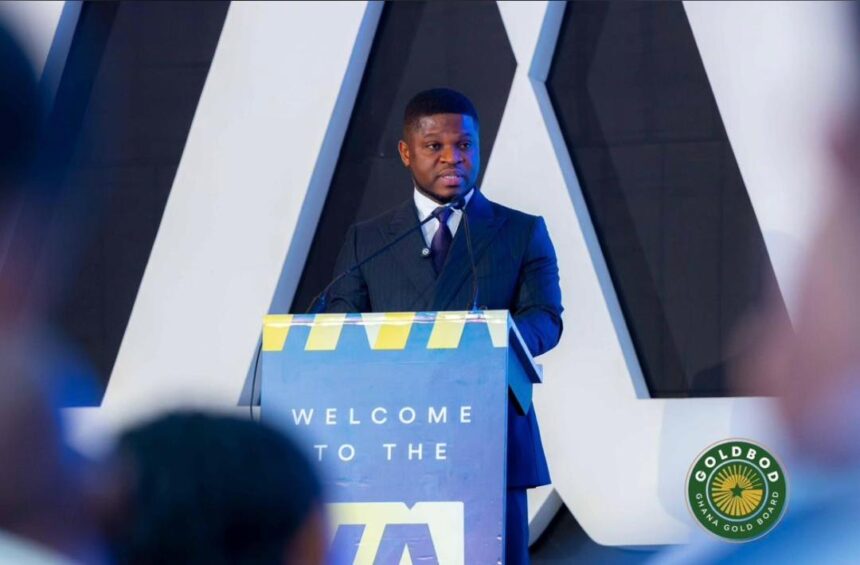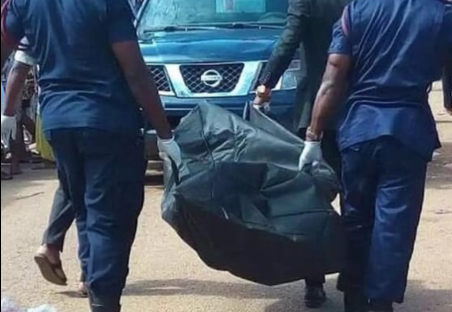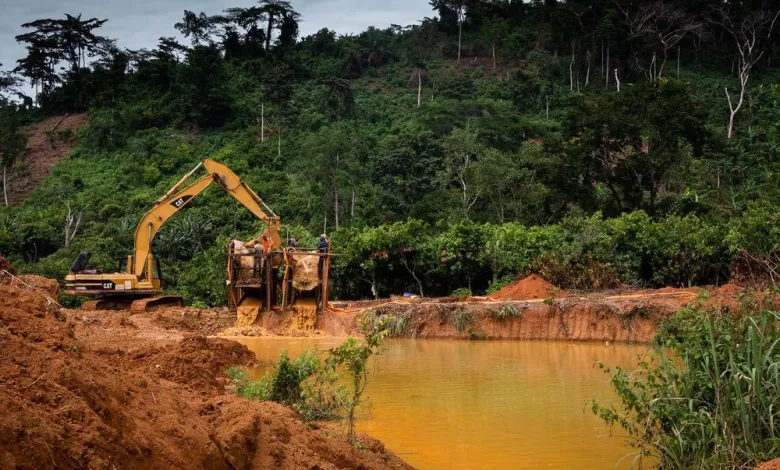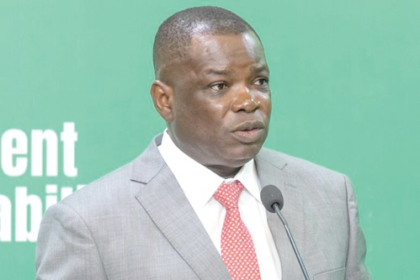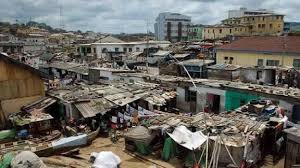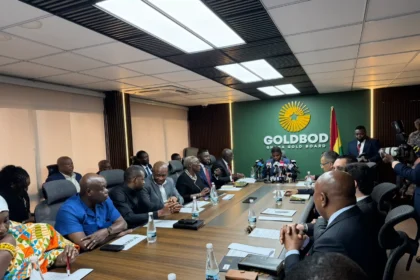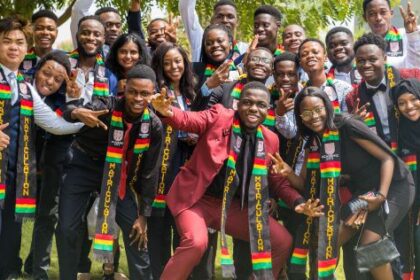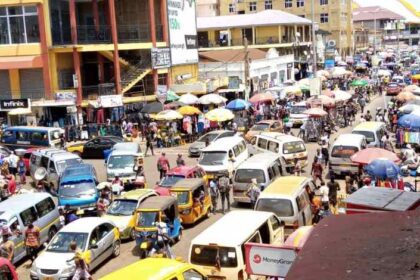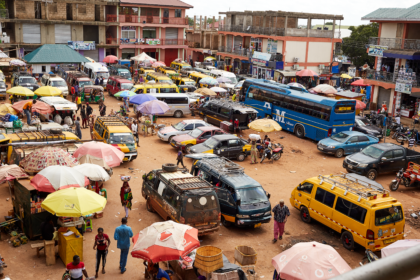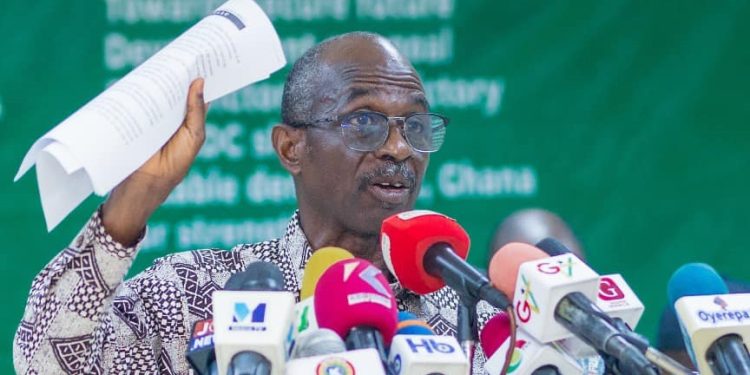Lawyer Sammy Gyamfi, Chief Executive Officer, Ghana Gold Board (GoldBod) has delivered a compelling address at the maiden Mining and Minerals Convention, welcoming dignitaries including the Chief of Staff, Hon. Julius Debrah, the Minister for Lands and Natural Resources, Members of Parliament, industry leaders, and invited guests.
He opened by expressing his gratitude to event organizers and reaffirmed the importance of collaborative dialogue in shaping Ghana’s evolving minerals sector.
The African Paradox: Endowed Yet Underdeveloped
Mr. Gyamfi acknowledged Africa’s abundance—holding 30% of global mineral reserves and accounting for 70% of exports—yet questioned why poverty and underdevelopment persist. He argued that the root cause lies in the continent’s failure to harness its resources for economic transformation.
Ghana’s New Direction Under GoldBod
Ghana, he asserted, is charting a new path under President Mahama’s leadership by ensuring national benefit through the Ghana Gold Board (GoldBod). The institution’s mandate: streamline the gold trade, enforce value retention, and assert sovereign control across the gold value chain—from artisanal supply to export.
Key measures already implemented include:
- Licensing reforms for responsible sourcing
- Strengthened regulatory oversight
- Transparent, competitive pricing models
- Nationwide aggregation systems
- Removal of incentives encouraging gold smuggling
- Launch of anti-smuggling taskforce with rewards for whistleblower tips
These efforts have led to unprecedented gains: from January to August 2025, Small-Scale Mining (ASM) gold exports reached 66.7 tonnes, valued at USD 6 billion, surpassing all of 2024. Impressively, ASM exports outperformed those of the large-scale mining sector in both volume and value.
Supporting Ghana’s Sovereign Reserves
GoldBod also supports gold reserve growth by purchasing 20% of production from seven major mining companies. To date, nearly 100 kilograms of gold have been supplied to the Bank of Ghana, bolstering national reserves.
These developments have generated much-needed forex, stabilizing the Ghanaian cedi and strengthening the country’s balance of payments.
Transforming the Mining Landscape
GoldBod’s mission extends beyond revenue generation—its focus includes sustainable, traceable, and ethically sourced practices. Plans are underway to launch a nationwide gold traceability system later this year, ensuring every gram is linked back to its lawful origin.
To combat illegal mining, GoldBod pledges:
- Donating five Toyota Hilux vehicles and GHS 5 million to support anti-galamsey efforts
- Funding ecological restoration across 1,000 hectares of forest reserves
- Launching community-driven CSR programs delivering potable water, education, and scholarships
Additionally, GoldBod is advancing cooperatives in formalizing ASM operations to create jobs and increase accountable gold production.
Mining Support Program & Major Investment
Recognizing the urgent need for investment, GoldBod initiated a Mining Support Program to attract capital—particularly for eco-friendly mining technology and value chain development.
On 22 August 2025, a $1 billion MoU was signed with Goldstream Global DMCC to establish over 300 responsible mining sites. Collaboration with the Minerals Commission is already delivering access to mineral-rich land, while job creation and youth empowerment are central goals.
GoldBod has also partnered with geological institutions to enhance resource mapping and de-risk investment through rigorous data.
Innovation in Value Addition
Ghana’s continued reliance on exporting raw doré is unacceptable, declared Mr. Gyamfi. GoldBod is spearheading initiatives to refine gold locally—partnering with refineries and local firms, including efforts in place at the Gold Coast Refinery. Plans are in motion to build:
- An ISO-certified assay laboratory at Kotoka Airport
- A state-owned refinery transitioning output to refined bullion
- A “Gold Village” to anchor artisanal jewelry and ornaments production
He challenged the financial sector and pension institutions to redirect capital into mining equity and export credit infrastructure to unlock the sector’s full potential.
A Bold African Vision for the Future
Looking ahead, Mr. Gyamfi spotlighted demographic momentum: by 2030, Africa will have 375 million youth aged 15–35. To harness this demographic dividend, the mining sector must:
- Move from raw exports to in-continent value-addition
- Empower youth as innovators and owners, not just laborers
- Embrace technology and responsible trade
He issued a powerful rallying call:
“Let African minerals build African futures; let our natural revenues fuel innovation, not corruption; and let our youth lead global trade—not just participate. Ghana is resetting, and Africa is rising. The GoldBod is ready. All we need now is courage and capital.”




